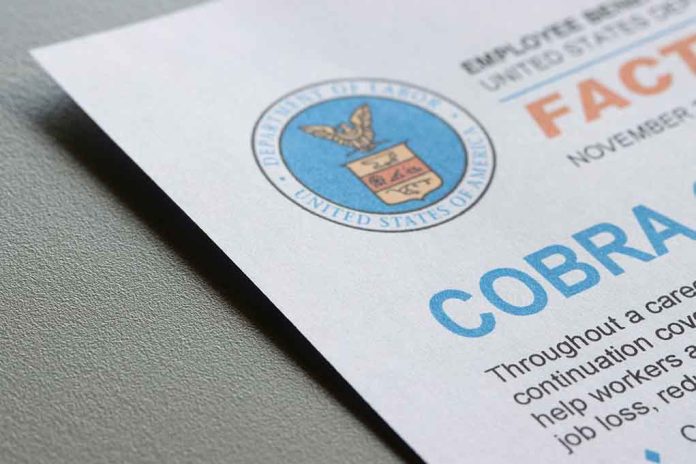
(DailyDig.com) – As the economic impacts of COVID-19 were felt across the nation, some families, who were covered lost employment-based health insurance due to job loss or reduced hours. However, becoming uninsured at this critical time might be very risky.
The good thing is that most people who’ve lost their insurance have the alternative of obtaining subsidized Consolidated Omnibus Budget Reconciliation Act (COBRA). COBRA is essential coverage to help you while you try to get up on your feet after you have lost your job. Generally, employers should provide families the option to “stay” with their job-based coverage for a limited amount of time.
What is COBRA Coverage?
Under some circumstances, such as job loss or other life events, COBRA permits individuals and families who lose their medical benefits to keep their group health benefits provided by their health insurance plan for a limited time. Individuals who satisfy specific requirements may be forced to pay the whole insurance premium, up to 102 percent of the plan’s expenditures.
COBRA requires that organizations with 20 or more employees give employees and their families the option of temporary continuation coverage when the plan’s coverage would otherwise end.
COBRA explains how employees and their dependents may keep their health insurance. Employers and plans are also required to notify employees.
Who Qualifies for COBRA Coverage?
You don’t have to choose a new plan with COBRA continuous coverage. You keep your current employer-sponsored health insurance. There’s no need to start over with a new deductible and out-of-pocket limit in the middle of the year. Because your existing healthcare coverage isn’t in-network with your current health plan, you won’t be able to get a new one.
There will be no medical records or medications transferred. You can keep your existing health insurance for up to 18 to 36 months (based on your situation), giving you ample time to readjust and get new coverage.
However, not everyone is eligible to continue their health insurance under the COBRA provision. Knowing whether you qualify for COBRA health insurance will help you prepare for the future.
You must meet all three of the following conditions to qualify for COBRA:
- The COBRA law must apply to your existing health plan because not all health insurance policies comply with COBRA laws.
- Your existing health plan must deem you a qualifying beneficiary.
- You must have a qualifying reason.
How to Sign Up for Cobra Coverage
This is how COBRA insurance works:
- Because of a qualifying incident, your employer’s health insurance ceased.
- The employer sends you a notice to reinstate your workplace insurance within 45 days of the qualifying occurrence.
- You will have 60 days from the date of the election notification to re-enroll in your health plan, and coverage will resume when you make your first premium payment.
- Your coinsurance, copays, out-of-pocket payments, deductibles, and insurance cards remain the same for the whole year.
- Your first COBRA subscription payment will be due in 45 days.
The coverage is retroactive, so you may submit any medical bills you have before the COBRA plan begins for payment.
Bottom Line
COBRA enables employees to keep their employer-sponsored health plan after being inactive, albeit it is not accessible in all circumstances. If COBRA is a possibility, it’s crucial to weigh it against other options, such as another employer’s plan or a self-purchased individual/family market plan.
If COBRA is the best coverage for you or your family, then by all means, go for it. You will need some sense of peace after you or your family member has lost their job. This coverage will give you the time to refresh and figure out the next step going forward.
Copyright 2022, DailyDig.com













